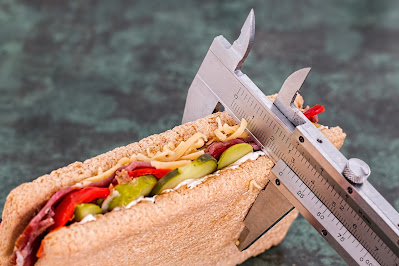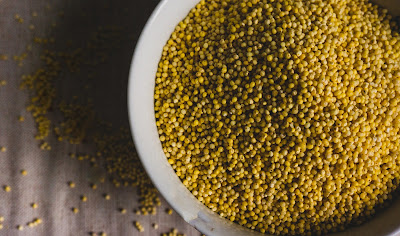Calorie deficit is indeed crucial for weight loss. It occurs when you consume fewer calories than your body needs for daily activities and basic bodily functions. When you consistently maintain a calorie deficit over time, your body will start utilizing stored fat as an energy source, leading to weight loss.
To successfully achieve a calorie deficit, you can follow these steps:
Determine your daily calorie needs: Calculate your Basal Metabolic Rate (BMR), which is the number of calories your body needs at rest, and then factor in your activity level using the Harris-Benedict equation or other methods. This will give you an estimate of your Total Daily Energy Expenditure (TDEE).
Set a calorie target: To create a calorie deficit, you need to consume fewer calories than your TDEE. Start by reducing your calorie intake by a moderate amount. Aim for a deficit of 500 to 1,000 calories per day, which is generally considered safe and sustainable for gradual weight loss.
Track your calorie intake: Monitor the number of calories you consume each day. Use food diaries, mobile apps, or online tools to track your meals and snacks. Be mindful of portion sizes, read food labels, and estimate calorie content when necessary. This awareness will help you make informed choices and stay within your target range.
Choose nutrient-dense foods: Focus on consuming whole, unprocessed foods that provide essential nutrients while being lower in calories. Include plenty of fruits, vegetables, lean proteins, whole grains, and healthy fats in your diet. These foods tend to be more filling, satisfying, and supportive of overall health.
Be mindful of liquid calories: Beverages such as soda, sugary juices, alcohol, and specialty coffees can contribute significant calories without providing much nutritional value. Opt for water, unsweetened tea, or black coffee instead. Cutting back on liquid calories can make a significant difference in your overall calorie intake.
Increase physical activity: In addition to adjusting your calorie intake, increasing your physical activity can help create a larger calorie deficit. Engage in regular exercise, such as cardio activities, strength training, or a combination of both. This will not only burn extra calories but also improve your overall fitness and well-being.
Monitor your progress: Regularly track your weight and body measurements to assess your progress. If you're not losing weight as expected, you may need to adjust your calorie intake or increase physical activity. Remember, weight loss is a gradual process, and it's important to be patient and consistent.
Seek professional guidance if needed: If you have specific dietary or health concerns, consider consulting a registered dietitian or healthcare professional. They can provide personalized advice and guidance based on your unique needs and circumstances.
Remember, weight loss should be approached in a balanced and sustainable manner. Extreme calorie deficits or crash diets can be detrimental to your health and lead to muscle loss, nutrient deficiencies, and a slowed metabolism. Aim for gradual and steady weight loss, typically 1-2 pounds per week, for long-term success and better overall well-being.
14 Day Belly Fat Loss
14 Day Belly Fat Loss Fitness Plan Is The Fastest Way To Lose Weight and Lose Belly Fat - Keep Fit, Be Full Of Energy, Look and Feel Younger With A Slim Flat Belly Using Belly Fat Burning Foods, Easy Workouts And Diets.
Sunday, May 14, 2023
Calorie Deficit Diet Is Crucial For Weight Loss
Wednesday, May 3, 2023
Health And Weight Loss Benefits Of Little Millet
Little millet, also known as kutki, is a type of cereal grain that is commonly grown in India and other parts of Asia. It is a nutritious food that offers several health and weight loss benefits, including:
High in fiber: Little millet is high in fiber, which can help improve digestion, reduce the risk of constipation, and promote satiety. Consuming high-fiber foods can also help regulate blood sugar levels, lower cholesterol levels, and reduce the risk of heart disease.
Low glycemic index: Little millet has a low glycemic index, which means that it releases glucose into the bloodstream slowly. This can help regulate blood sugar levels, reduce cravings for sugary or high-carbohydrate foods, and promote weight loss.
Low in calories: Little millet is low in calories, making it an ideal food for weight loss. Consuming low-calorie foods can help create a calorie deficit, which is necessary for weight loss.
Gluten-free: Little millet is gluten-free, making it an excellent food choice for people with celiac disease or gluten intolerance.
Rich in vitamins and minerals: Little millet is a good source of several vitamins and minerals, including iron, magnesium, phosphorus, and vitamin B6. These nutrients are essential for maintaining good health and can help boost energy levels and reduce the risk of chronic diseases.
Versatile: Little millet is a versatile food that can be used in a variety of recipes, including porridges, bread, salads, and soups. This makes it easy to incorporate into a healthy diet.
In summary, little millet is a nutritious and versatile food that offers several health and weight loss benefits. It is high in fiber, low in calories, and has a low glycemic index, making it an excellent food choice for people looking to lose weight or maintain a healthy diet. It is also a good source of vitamins and minerals, making it an ideal food for overall health and wellbeing.
Wednesday, April 26, 2023
Age And Sex Determine The Health Benefits Of Dieting
Age and sex can play a role in determining the health benefits of dieting. The nutritional needs of individuals can vary based on their age, sex, and other factors, such as activity level and overall health status.
Age: As people age, their metabolism may slow down, and they may need fewer calories than when they were younger. Additionally, older adults may have different nutrient needs due to changes in body composition, hormone levels, and other factors. For example, older adults may need more calcium and vitamin D to support bone health, and more protein to maintain muscle mass. A diet that is rich in nutrient-dense foods, such as fruits, vegetables, whole grains, lean proteins, and healthy fats, can provide the necessary nutrients for older adults to maintain good health.
Sex: Men and women have different nutritional needs based on biological differences. For example, women may need more iron to support menstrual cycles and pregnancy, while men may need more zinc to support prostate health. Additionally, men tend to have more muscle mass than women, so they may need more protein to maintain muscle mass. However, these differences may not apply to everyone, and the specific nutritional needs of individuals may vary based on other factors, such as their age, activity level, and overall health status.
In general, a balanced, nutrient-dense diet can provide health benefits regardless of age or sex. However, it is important for individuals to work with a healthcare provider or registered dietitian to develop a personalized eating plan that meets their specific nutritional needs and health goals. Additionally, other lifestyle factors, such as physical activity and stress management, can also play a role in overall health and should be considered as part of a comprehensive approach to wellness.


